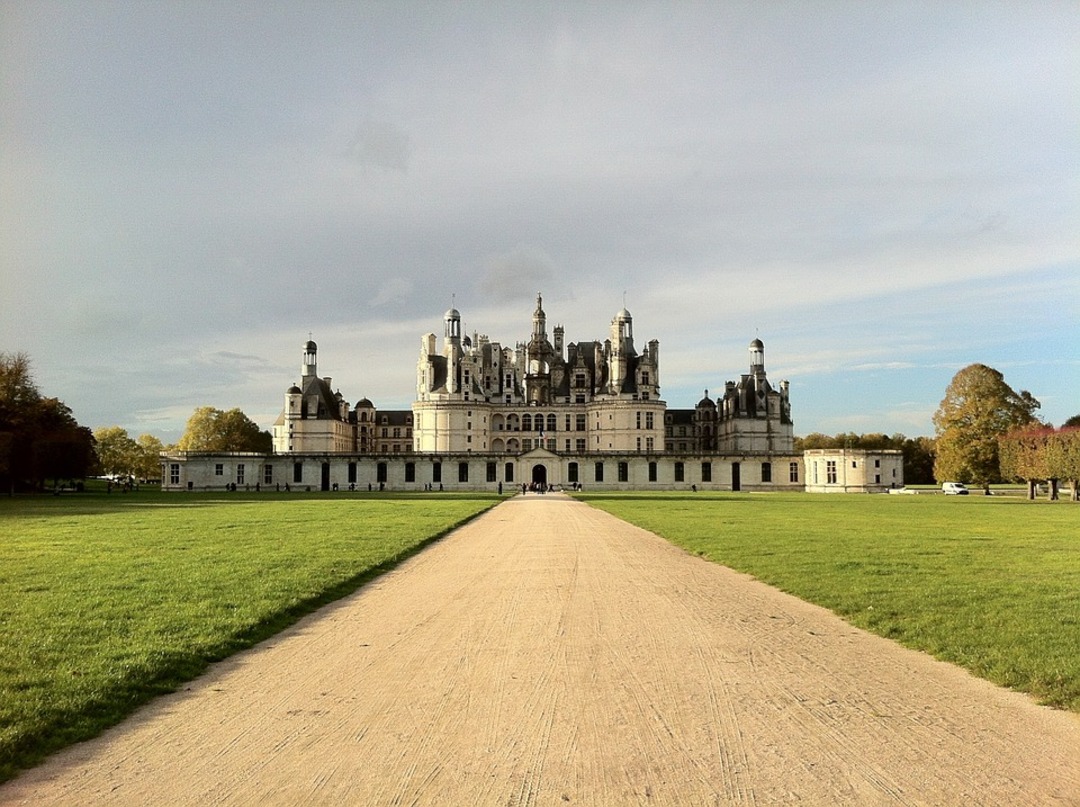-
French chateaux braces for huge winter heating bills

Energy bills in France are expected to soar compared to last year, partly as a result of a hike in gas prices following the Russian invasion of Ukraine.
The prospect is particularly worrying owners and directors of large historical buildings dotted along the Loire.
Xavier Leleve, the owner of a 12th-century building, dreads to find out how much it will cost to heat his french chateau on the riverbanks of the Loire.
Usually, Leleve pays $14,800 to $19,700 in heating, electricity and gas each winter to keep the Meung-sur-Loire castle up and running.
But this year, “it’ll be five to ten times more expensive. You simply can’t start spending that much on energy,” he said.
It would divert funds from other projects, including the much-needed conservation of some parts of the listed building. In a wing of the castle closed off to the public, he pointed to the windows.

Some looked in bad shape, with duct tape covering some wooden frames and barely keeping out the outside cold. Other windows were brand new, put in place after long discussions with the regional cultural authority on what they should look like to best respect the castle’s original aesthetics.
“A window costs around 10,000 euros and we have 148 of them, so you can imagine how much the window budget is,” said Leleve.
An hour’s drive away down the river, Charles-Antoine de Vibraye has decided the best course of action to keep his huge family home heated this winter is to do nothing at all.
Ukraine lost 90% of wind power and 50% of solar power due to Russian attacks
The Cheverny chateau, which inspired Captain Haddock’s family estate in “The Adventures of Tintin,” has belonged to the same family for six centuries, its website says.
Today some of the family still live in one wing of the stately home, but the rest of the building and its grounds include a restaurant and a Tintin exhibition, and are open to paying visitors.
De Vibraye says the business, one of the most visited Loire Valley castles, is successful enough for the family to be able to afford the extra cost of the 30,000 to 40,000 liters of heating oil needed each year.
He does not plan to increase the building’s insulation either.
“If you trap in the heat, you just help the possible fungi and insects that will eat up your wood,” he said.
EU leaders to meet in Brussels and discuss ways out of energy crisis
“You need to limit heating to a bare minimum to not upset this healthy cycle of thermal exchanges inside a historical building,” he added, though admitting a constant temperature was better for old furniture.
He said two-thirds of the building was heated, “especially in the rooms that people visit and where there is historical furniture.”
A little further south, four large logs burn in the chimney at the bottom of a sweeping staircase in the state-owned Chateau of Chambord, the only source of heat for visitors.
French president Macron calls for united European energy policy
But its offices, shops and some 40 houses on its estate are heated.
“The budget has doubled in two years. We’ve gone from 260,000 euros to more than 600,000 in the budget for 2023,” said Jean d’Haussonville, the director of the surrounding estate.
The castle, one of several on the section of the Loire Valley listed as a UNESCO World Heritage site, usually works with an annual budget of 30 million euros a year.
Of that, the energy bill is now expected to be equivalent to the cost of two temporary exhibitions and a festival, he said.
Source: arabnews
You May Also Like
Popular Posts
Caricature
BENEFIT Sponsors BuildHer...
- April 23, 2025
BENEFIT, the Kingdom’s innovator and leading company in Fintech and electronic financial transactions service, has sponsored the BuildHer CityHack 2025 Hackathon, a two-day event spearheaded by the College of Engineering and Technology at the Royal University for Women (RUW).
Aimed at secondary school students, the event brought together a distinguished group of academic professionals and technology experts to mentor and inspire young participants.
More than 100 high school students from across the Kingdom of Bahrain took part in the hackathon, which featured an intensive programme of training workshops and hands-on sessions. These activities were tailored to enhance participants’ critical thinking, collaborative problem-solving, and team-building capabilities, while also encouraging the development of practical and sustainable solutions to contemporary challenges using modern technological tools.
BENEFIT’s Chief Executive Mr. Abdulwahed AlJanahi, commented: “Our support for this educational hackathon reflects our long-term strategic vision to nurture the talents of emerging national youth and empower the next generation of accomplished female leaders in technology. By fostering creativity and innovation, we aim to contribute meaningfully to Bahrain’s comprehensive development goals and align with the aspirations outlined in the Kingdom’s Vision 2030—an ambition in which BENEFIT plays a central role.”
Professor Riyadh Yousif Hamzah, President of the Royal University for Women, commented: “This initiative reflects our commitment to advancing women in STEM fields. We're cultivating a generation of creative, solution-driven female leaders who will drive national development. Our partnership with BENEFIT exemplifies the powerful synergy between academia and private sector in supporting educational innovation.”
Hanan Abdulla Hasan, Senior Manager, PR & Communication at BENEFIT, said: “We are honoured to collaborate with RUW in supporting this remarkable technology-focused event. It highlights our commitment to social responsibility, and our ongoing efforts to enhance the digital and innovation capabilities of young Bahraini women and foster their ability to harness technological tools in the service of a smarter, more sustainable future.”
For his part, Dr. Humam ElAgha, Acting Dean of the College of Engineering and Technology at the University, said: “BuildHer CityHack 2025 embodies our hands-on approach to education. By tackling real-world problems through creative thinking and sustainable solutions, we're preparing women to thrive in the knowledge economy – a cornerstone of the University's vision.”
opinion
Report
ads
Newsletter
Subscribe to our mailing list to get the new updates!






















